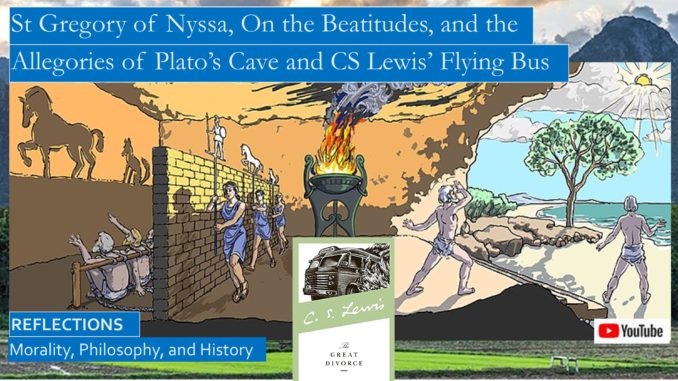
St Gregory of Nyssa, in his first sermon on the Beatitudes, commented that before the Christian could climb the mountains that Isaiah proclaimed, the mountain where he could hear the Beatitudes and the Sermon on the Mount, he would first need to muster the courage to climb out Plato’s cave of willful ignorance and face the bright sun, the bright outside world.
Another allegory similar to Plato’s Allegory of the Cave, the central story in the Republic and Platonic philosophy, is CS Lewis’ great book, the Great Divorce, about how Hell itself is a another type of dark cave of deceptions, where the brave few can still choose to board the bus to climb into the bright sun and visit a brighter place, the fields surrounding the mountain the faithful climb in their eternal quest for perfection and union with Christ.
The YouTube video that includes this blog along with Plato’s Allegory of the Cave: https://youtu.be/wuqwy3GyO_4
YouTube script with more book links: https://www.slideshare.net/BruceStrom1/st-gregory-of-nyssa-on-beatitudes-platos-allegory-of-the-cave-and-cs-lewis-and-great-divorce
This is the blog on St Gregory of Nyssa’s first sermon on the Beatitudes, where he discusses Plato’s Allegory of the Cave:
http://www.seekingvirtueandwisdom.com/st-gregory-of-nyssa-beatitudes-blog-1-the-allegory-of-the-cave/
You may object that analogy is flawed, since the deluded in Plato’s cave make an intellectual journey, while the riders in the CS Lewis’ divine bus that lifts in the heavens to travel to the outskirts of heaven is a spiritual journey. The difference is not that great, both are a climb away from a willful ignorance, and St Gregory of Nyssa is suggesting that we need to make Plato’s journey out of the cave before we can take the bus to heaven. If you listen to our videos on the teachings of the Eastern Church Fathers in the Philokalia, you will find that they do not make an overly sharp distinction between the intellect and the spiritual side of man. Indeed, when an illiterate initiate first joined an ancient monastery, they were often compelled to learn to read so they could read the Psalters and the Gospels. Studying the faith was a critical part of the ancient church.
CS Lewis never wants to get bogged down in the typical controversies that so often divide Christians, especially in the social media. One such divider is the doctrine of Purgatory. He simply explains that in his story that Hell is Hell for the overwhelming majority who decline to even board the bus, but for the very, very few who board the bus and choose to stay in heaven, for them the dark, dank, lonely world is Purgatory. In the end, whether Purgatory actually exists is God’s choice, not ours, and if God can choose for Purgatory exists, God can also choose that Purgatory exists for some people and not others. So perhaps if you are baptized Catholic and believe that you do not need to repent and live a godly life to be saved, because you can spend the tens of thousands of years in Purgatory in repentance, perhaps then Purgatory would not exist for you.
Everyone is alone in Hell, every day is “always raining, always in perpetual twilight,” street after street of empty streets, everyone always moving further away to be alone, the grey city expanding endlessly. Like those chained to the wall in Plato’s cave, most of those in Hell are not eager to leave this dark and dreary place; very, very few even consider getting on the bus.
The bus to heaven is described by CS Lewis as a “wonderful vehicle, blazing with golden light, heraldically colored. The Driver himself seemed full of light and he used only one hand to drive with. The other he waved before his face as if to fan away the greasy steam of the rain.” Everyone perpetually complains and argues and finds fault with their neighbors in Hell. CS Lewis continues, “a growl went up from the queues as he came in sight. ‘Looks as if he had a good time of it, eh?’”, “thinks himself too good to look at us.”
In the Great Divorce, is the Driver an angel, or Jesus Himself? One the one hand, the Driver could be an angel, it might out of character for Jesus not to converse with the passengers on the bus, but they have already rejected Him all their lives. One the other hand, time in eternity is eternally in the present, and this bus could symbolize the harrowing of Hell, how the Driver is the Jesus in the Creed who “descended into hell” to preach to the spirits.
Our narrator tells us that “my fellow passengers fought like hens to get on board the bus although there was plenty of room for all.” Very few of the residents of Hell ever got in the queue for the bus to Heaven, and many broke out of the queue before the bus arrived.[1] Later, during the journey, the passengers fought among themselves, there was even some shooting, although death had already happened to all the ghosts by then.
The hell that CS Lewis depicts is not someplace where a mean God condemns those who want to have a little bit of fun in their lives. On the contrary, Hell is a choice. If you live a selfless life, if you live a godly life, if you truly Love God, if you truly love your neighbor as yourself, then Heaven is your choice. If you live a selfish life, if you ignore God, if you despise your neighbor, or delude yourself by imagining that it is possible to pick and choose whom you will and will not love, then Hell is your choice.
As CS Lewis teaches us, “There are two types of people in the end: those who say to God, ‘Thy will be done,’ and those to whom God says, ‘thy will be done.’ Without that self-choice there could be no Hell. No soul that seriously and constantly wants joy will miss it. Those who seek find. To those who knock the door is opened.”[2]
Whether we truly Love God, whether we seek to truly ask God, must be a question we constantly try to discern, as the many stories of souls demonstrate. Another way to put this is the long-told joke, What is the difference between those who want to go to church on Sunday, and those who want to go to the beach on Sunday? The difference is the people who go to the beach on Sunday don’t go to church because they don’t need to change, while the people who go to church don’t need to change either, because they go to church.
Jesus in the Gospels proclaims that the Kingdom of Heaven is among us. Indeed, we create our own Heaven and Hell in our lives on Earth, our choice is indeed eternal. CS Lewis explains the timeless nature of our choices, he teaches us that that often we, who are mortal do not understand eternity. “Mortals say of some temporal, or earthly, suffering, ‘No future bliss can make up for it,’ not knowing that Heaven, once attained, will work backwards and turn even that agony into a glory. And of some sinful pleasure they say, ‘Let me have but this and I’ll take the consequences,’ little dreaming how damnation will spread back and back into their past and contaminate the pleasure of sin.”
CS Lewis continues, “Both processes begin even before death. The good man’s past begins to change so that his forgiven sins and remembered sorrows take on the quality of Heaven, but the bad man’s past already conforms to his badness and is filled only with dreariness.” “And that is why the Blessed will say, ‘We have never lived anywhere except in Heaven,’ and the Lost, ‘We were always in Hell.’ And both will speak truly.”[3]
As the bus rises and Hell shrinks underneath the bus, the dark and dreary twilight fade away into a joyous sky full of brightness, and they encounter the brilliant colors of the landscape when the bus arrives at the foothills of Heaven, “the light, the grass, the trees were different, made of some different substance, so much solider than the things in our country,” that is, Hell, “that men were ghosts in comparison.” “Greenness and light” nearby, far was there was “a great cloud bank or a range of mountains,” mountains the saved climbed as they rose in perfection higher in the heavens.
But to the ghosts from Hell, the beautiful green grass was like shards of glass, their feet were not accustomed to the goodness of the green grass, their feet hurt as they walked on the grass, their soul was ruined by the years of laziness and bad habits. So immediately we see the allegory to the teachings of the Early Church Fathers and Stoics, who teach us that we should work out our salvation in our daily lives, living each day with self-discipline.
The genius of CS Lewis is drawing out the wisdom of the Church Fathers into dialogue and examples modern man can relate to. He has an interesting dialogue of a lazy soul who quickly climbs back on the bus back to Hell, who still does not want to do the work needed to live a selfless and godly life, who criticizes anyone who dares to suggest he needs to put any effort into improving himself in any way:
“People have been telling me the same old LIE all my life. They told me in nursery that if I were good, I’d be happy. And they told me at school that Latin would get easy as I went on. After I’d been married a month, some fool was telling me that there were always difficulties at first, but with Tact and Patience I’d soon ‘settle down’ and like it! And all through two wars what didn’t they say about the good time coming if only I’d be a brave boy and go on being shot at? Of course, they’ll play the same game here if anyone is fool enough to listen.”
What a convincing argument against salvation this is! In essence, the ghost is accusing God of lying, as he accuses everyone who dares to suggest that he needs to do the work do have a good life of lying, this is the original sin of the serpent tempting Eve, telling Eve that God is lying to you, that you can eat the apple, nothing will happen!
Most of the souls climb back onto the bus after mere moments, and we hear the only dialogue with the Driver, “Hi, Mister” said the Big Man, addressing the Driver, “when have we got to be back?”
“You need never come back unless you want to,” said the Driver. “Stay as long as you please.” [4] But the glare of the sun is too bright for those souls who have for many years been chained to the walls of the cave, too bright for those souls whose eyes are used to the dark, damp twilight of the grey city of Hell.
Our narrator meets the spirit of George MacDonald, the recent British religious author whom CS Lewis admired the most. Each of the ghosts from Hell is conversing with spirits they knew on earth, as MacDonald explains, “Every one of us lives only to journey further and further into the mountains. Every one of us has interrupted that journey and retraced immeasurable distances to come down today on the mere chance of saving some Ghost.”
And the chances are mere chances, only the narrator, among all those on the bus, stays to journey up the mountains of Heavens, all the rest go back to the bus for the journey down into the dreary, dark, dank endless streets of Hell, “spitting and gibbering in one ecstasy of hatred their envy and their contempt of joy.”[5]
We can learn much from the discussions our narrator relates between the grey ghosts from Hell and the resurrected souls of the saved, about the laziness of the suicide who threw himself under a bus to hurt those who loved him in their own imperfect way, the nagging mothers whose false love soured in selfishness, the murderers who did wish to reconcile with their victims, and those ghosts who rejected and denied the evidence of God they could now see with their own eyes out of a false intellectualism.
One sad story is that of a bride who was joyously and gloriously radiant and joyful in the green grasses of Heaven, but who was married to a very sad little man who, although he was always faithful to her on earth, also rejected her love, trying always to make her feel miserable and guilty for his unhappiness. When our narrator asks MacDonald about this sad story, he responds that “the demand of the loveless and self-imprisoned is that they should be allowed to blackmail the universe: that they should be allowed to blackmail the universe: that till they consent to be happy, on their own terms, that no one else shall taste joy: that theirs should be the final power; that Hell should be able to veto Heaven.”[6]
[1] CS Lewis, The Great Divorce (New York: HarperOne Publishing, 1946, 1973), pp. 1-4.
[2] CS Lewis, The Great Divorce, p. 75.
[3] CS Lewis, The Great Divorce, p. 69.
[4] CS Lewis, The Great Divorce, pp. 21-23.
[5] CS Lewis, The Great Divorce, p. 82.
[6] CS Lewis, The Great Divorce, pp. 129-135.

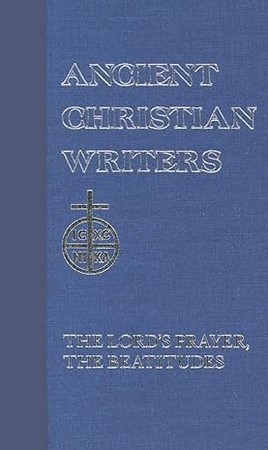
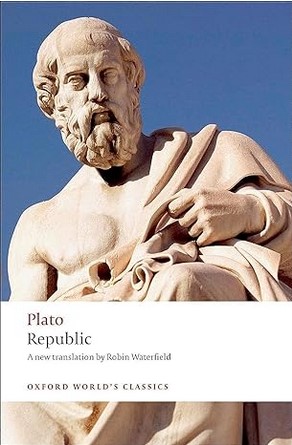
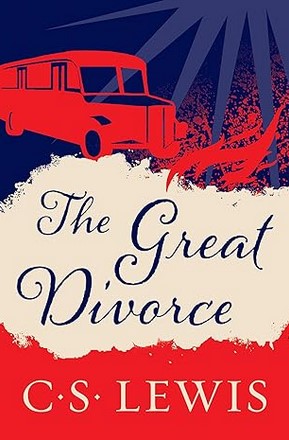
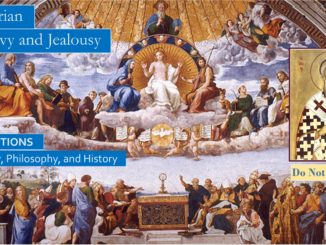
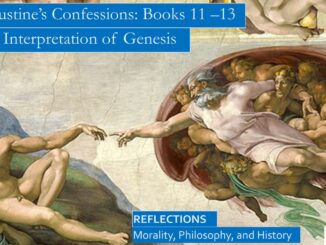
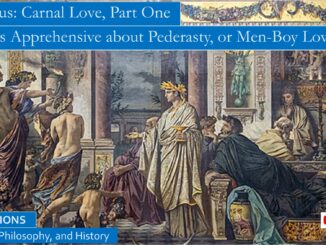
7 Trackbacks / Pingbacks